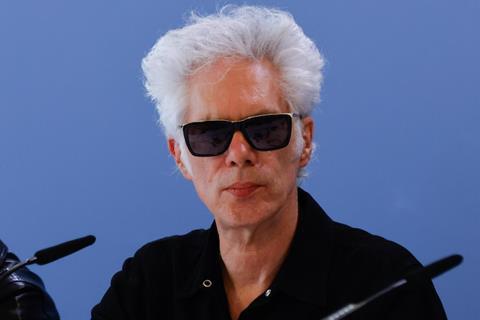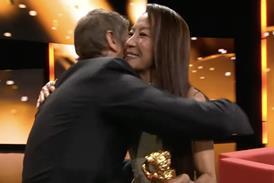
Jim Jarmusch says he was “disappointed and disconcerted” by the funding Mubi, distributor of his new film Father Mother Sister Brother, is receiving from Sequoia Capital, the investment firm which also backs an Israeli defence technology firm.
“I have spoken to Mubi about it,” said Jarmusch in response to a question from Screen about his views on the topic at the press conference for his Venice Competition title. “I have a very good relationship with Jason Ropell at Mubi particularly. He called me immediately.
“He had not been aware when this relationship was made. My relationship with Mubi started much before that. And they were fantastic to work with on this film.
“I was of course disappointed and quite disconcerted by this relationship, and I think if you want to discuss it you have to address Mubi about it,” said Jarmusch. “I am not the spokesman.”
“Yes, I was concerned. I also have a distribution agreement with Mubi for certain territories which I had also entered into before my knowledge of this,” continued Jarmusch. “But having said that, on a personal level, I am an independent filmmaker and I have taken money from various sources to be able to realise my films. And I consider pretty much all corporate money is dirty money. And if you start analysing each of these film companies and their financing structures you are going to find a lot of nasty dirt. So it is all there.
“We could avoid it and not make films at all. But the films are what I chose to carry things I would like to say. So yes, I am concerned but one thing I don’t like – and you have not done this [addressed to Screen] – is putting the onus of the explanation of this on the artists. It is Mubi you must address. But not just Mubi, other companies as well.”
Earlier this year Jarmusch was one of several hundred signatories to an open letter by Artists4Ceasefire, which asked for the US president and Congress to call for an immediate de-escalation and ceasefire in Gaza and Israel.
Mubi-owned The Match Factory handles sales on Father Mother Sister Brother, with Mubi acquiring rights for territories including US and UK-Ireland in February this year. The film opens in the US on December 24.
Creative warfare
Indya Moore, cast member in Father Mother Sister Brother, then gave a detailed analysis of the current pressure on artists to speak about political topics.
“Since the genocide of Palestinians began, there has been an incredible amount of creative warfare and resource warfare behind the scenes,” said Moore, to applause from some press in the room. “People are trying to figure out how do we work in a capacity that is ethical and is not enabling a systematic pipeline that funds these kind of things to happen to people. The kind of due diligence that people are learning how to do is a developing process.
“These are not questions that we have ever had to ask before, especially as independent artists,” added Moore. “And we are all trying to figure out how to navigate this and survive.”
“If you were to ask me ‘why did you work here or there, when this person or that entity is behind this thing?’ – most likely I didn’t know.”
“We cannot always control the spaces that we are in,” said Moore. “But my hope is that those people responsible for doing harm are more uncomfortable with the fact that they have to work with people who know that they are doing wrong, and that they stay away.
“The people that we create for have to amplify the pressure in that direction. So that we artists are able to continue work – or able to continue to resource ourselves so that we have can have a platform to amplify the messages that we need.“
”It is really important that we have the support of our audience to understand how to zero into the powers responsible, not the people who are trying to be of service.”
Efe Cakarel, Mubi CEO, wrote an open letter earlier this month on the topic in which he said accusations that Mubi is complicit in events in Gaza are “fundamentally at odds with the values we hold as individuals and as a company.”

























No comments yet